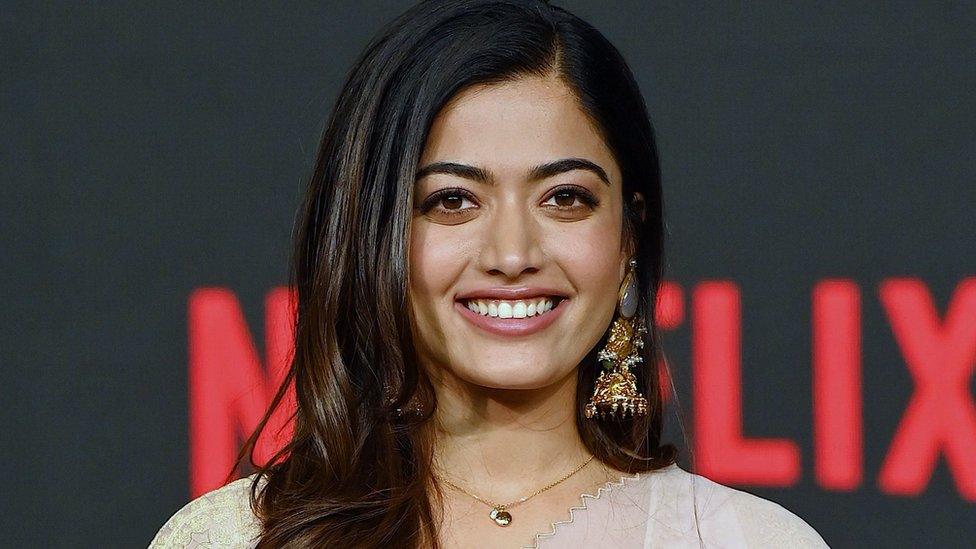Rashmika Mandanna calls for action against 'scary' deepfake video
- Published

A deepfake video of actress Rashmika Mandanna has gone viral online.
Indian actress Rashmika Mandanna has called a deepfake video of herself, which has gone viral on social media, "extremely scary".
Ms Mandanna's face was morphed onto an Instagram video posted by a British-Indian woman named Zara Patel.
India's information technology minister has called such deepfake videos a more "damaging form of misinformation".
The 27-year-old actress has worked mostly in Telugu and Kannada films and won a number of awards for her roles.
She will be next seen with actor Ranbir Kapoor in the Bollywood film Animal, which is due for release on 1 December.
Abhishek Kumar, a journalist who works with the fact-checking platform Alt News, first reported that the viral video showing Ms Mandanna was a deepfake.
Mr Kumar posted the original video on X (formerly Twitter). He pointed out that the fake video showed Ms Mandanna's face replacing Ms Patel's as she is seen entering an elevator.
"From a deepfake POV [point of view], the viral video is perfect enough for ordinary social media users to fall for it," Mr Kumar wrote. He also asked for a legal framework to deal with such cases in future.
Veteran Bollywood actor Amitabh Bachchan, who co-starred with Ms Mandanna in a film last year, shared the post and said there was "a strong case for legal action".
In a statement on X, Ms Mandanna said such an incident was scary "not only for me, but also for each one of us who today is vulnerable to so much harm because of how technology is being misused".
"If this happened to me when I was in school or college, I genuinely can't imagine how could I ever tackle this," she wrote.
The actor said she was grateful for the support of her family and friends and called for the issue to be addressed with urgency "before more of us are affected by such identity theft".
The woman in the original video, Ms Patel also responded to the fake video saying she was "deeply disturbed and upset" by it.
"I worry about the future of women and girls who now have to fear even more about putting themselves on social media," she wrote, external in an Instagram story.
India's IT Minister Rajeev Chandrashekhar said that deepfakes were the "latest and even more dangerous and damaging form of misinformation and need to be dealt with by platforms".
Under India's IT rules, social media platforms have to ensure "no misinformation is posted by any user", he added.
Platforms that do not comply with this could be taken to court under Indian law.
BBC News India is now on YouTube. Click here, external to subscribe and watch our documentaries, explainers and features.
